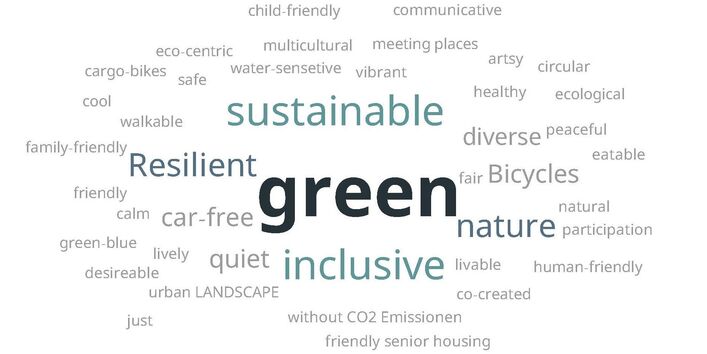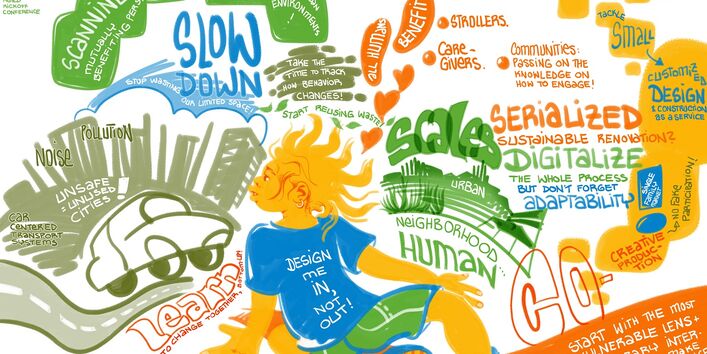Opening High-level Discussion Round on the New European Bauhaus (NEB)
Prof. Dr. Dirk Messner (President of the German Environment Agency, UBA), Ruth Reichstein (Advisory Board of the President of the EU Commission), Michela Magas (High Level Roundtable NEB)
The panelist discussed that cities in 2050 should be climate neutral, green, inclusive, incorporate all eco-systems and connect all spatial scales, from the neighborhood to the region. These goals require a deep transformation of society. The NEB has made us aware that everyone plays an important role in this necessary socio-ecological transformation and that the goals can only be reached if and when all of society is involved.
Cities are centers for the industry, energy and mobility systems – to transform these aspects we need to transform cities. Technical innovation requires cultural innovation. Different sectors need to connect with each other and with people on the ground to allow more communities to take charge of the transition themselves. The UBA plays various roles in this transition, including offering technical knowledge on urban infrastructures and building activities, as well as its capacity as a regulatory body.
The NEB recognizes that a sense of community is an underlying basis for our understanding of beauty. It is therefore necessary to unite designers, scientists, technologies and the industry so that people and systems can interact and create something new and beautiful. Thus, by creating beautiful places and examples, the NEB can develop a sense of belonging and living examples for transformation, such as the climate-neutral cities mission of the EU. The NEB looks to accelerate change and implement the Green Deal by creating, not predicting the future.
The AdNEB project looks at health, circularity, climate neutrality, adaptation and resilience, considering both interactions and tradeoffs. It hopes to be able to implement concrete solutions on the ground to provide examples for others to learn from and to generate a sense of belongingness.
As part of the panel discussion, participants were asked the question “what one word describes your dream city in the year of 2050?” The results have been compiled in the following word-cloud image.


